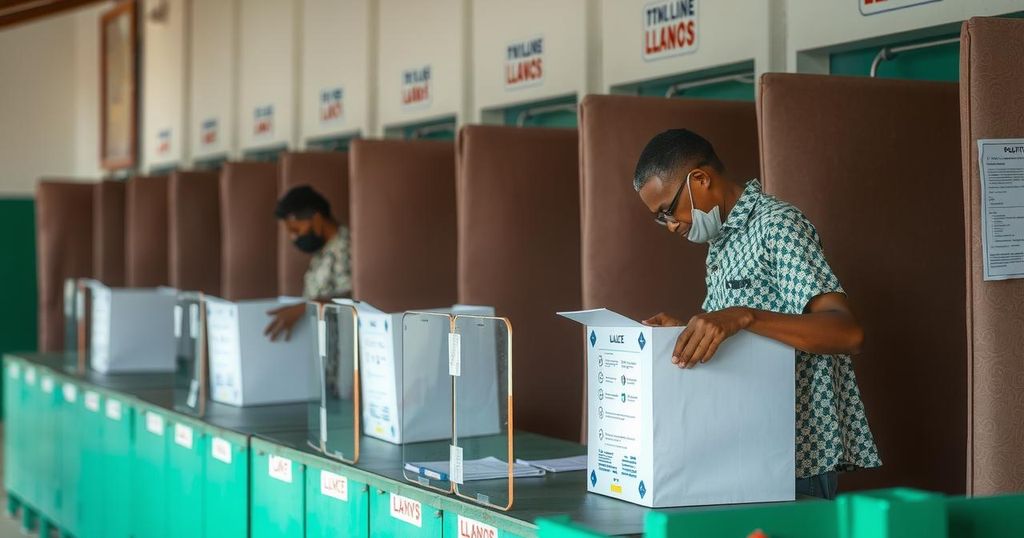World news
ABDALLAH SAMBI, AFRICA, AUSTRALIAN ASSOCIATED PRESS, AZALI ASSOUMANI, COMOROS, ELECTION FRAUD, GOVERNANCE, GOVERNMENT, HAMIDOU KARIHILA, HOPE OF THE COMOROS, INDIAN OCEAN, INDIAN OCEAN ARCHIPELAGO, JUWA, NO, NOUR EL - FATH, OPPOSITION, POLITICS, PRESIDENTIAL ELECTION, REUTERS, SUPREME COURT
Oliver Grayson
0 Comments
Comoros Holds Parliamentary Elections Amid Political Tensions and Controversy
Voters in Comoros head to the polls to elect members of the 33-seat parliament amid controversy since President Assoumani’s re-election last year, marked by allegations of irregularities. With nearly 100 candidates and increased tensions over authoritarian governance, the elections may indicate shifts in the political landscape. Results are due by Friday.
Voters in the Comoros archipelago are participating in parliamentary elections to fill the country’s 33-seat legislature, marking a year since President Azali Assoumani’s controversial re-election. Accusations of electoral irregularities marred that previous vote, which the ruling party vehemently refutes. On a Sunday morning, approximately 338,000 registered voters were welcomed as polling stations opened. The last parliamentary elections occurred in January 2020, and nearly 100 candidates were recognized by the Supreme Court for this cycle.
President Assoumani’s opponents have historically charged him with authoritarianism and voiced concerns about his apparent intention to groom his eldest son, Nour El-Fath, as his successor by 2029. Assoumani’s tenure in Comoros spans from 1999 when he rose to power via a coup, coupled with subsequent victories in three elections. His son has been granted significant authority in 2024 to oversee government operations.
Despite calls from certain opposition factions, including Juwa—led by former President Ahmed Abdallah Sambi, currently serving a life sentence— urging for a boycott of the elections, other parties have opted to participate. Opposition candidate Hamidou Karihila stated, “The Azali regime is weakened … by participating in these elections we are contributing to further exposing the flaws in its system and accelerating its inevitable fall.” Results from the elections are anticipated by the end of the week.
The political landscape in Comoros has been characterized by instability and allegations of authoritarian governance. President Azali Assoumani’s tenure has been controversial, marked by claims of electoral misconduct and attempts to consolidate power, particularly concerning his succession plan involving his son. The recent parliamentary elections come after opposition parties have expressed their concerns over the integrity of the electoral process, emphasizing the need to confront the perceived flaws in the political system.
The parliamentary elections in Comoros signify a critical moment in the nation’s political trajectory. With a significant number of voters registered and a diverse array of candidates vying for election, the outcome will likely impact both the ruling party’s grip on power and the opposition’s strategies moving forward. As the results approach, the tension surrounding the electoral integrity and the future of governance in Comoros comes sharply into focus.
Original Source: www.thesenior.com.au




Post Comment